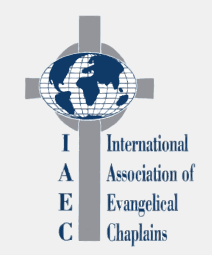-
DEVELOPING A CHAPLAINCY
Many nations in the world do not have a government-recognized chaplaincy. As a result, the preaching of the Gospel and other ministry either does not occur at all or is left to a civilian pastor. This is not optimum because the civilian pastor, as sincere as he may be, is not an integral part of the military or defense force. He probably does not understand the military culture, doesn’t have the ear of the commander, or as much access to the troops as a chaplain would.
We hope that the following briefing “Rationale for a Chaplaincy" might become helpful in your ministry. The briefing is in several languages and two formats. Click and select the language and the format you desire below. I
English  Power-point
Power-point Adobe Acrobat Reader
Adobe Acrobat ReaderFrench  Power-point
Power-point Adobe Acrobat Reader
Adobe Acrobat ReaderPortuguese  Power-point
Power-point Adobe Acrobat Reader
Adobe Acrobat ReaderRussian  Power-point
Power-point Adobe Acrobat Reader
Adobe Acrobat ReaderSpanish  Power-point
Power-point Adobe Acrobat Reader
Adobe Acrobat ReaderA nation gains much through having a government-recognized chaplaincy.
Some of these benefits include:
Chaplains provide worship and discipleship opportunities for soldiers wherever they are.
Chaplains help commanders accomplish their mission by taking care of soldiers and their families.
Chaplains improve readiness by building spiritual, mental, emotional, and moral health.
Chaplains provide their commanders with both moral support and guidance on ethical issues.
Chaplains enhance unit morale.
Chaplains save marriages.
Chaplains help improve staff communications.
Chaplains help to reduce Operational Stress.
Chaplains reduce prejudice and ethnic tension.
Chaplains protect the religious freedom of all service members, regardless of religion.
Contact the Executive Director for more information. You can also download “Considerations for Developing a Chaplaincy” for things to take into account.
-
TRAINING

